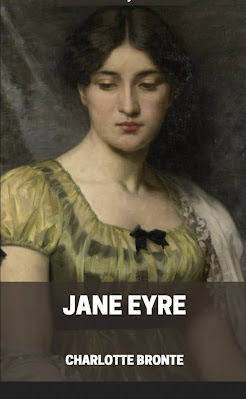Jane Eyre
by Charlotte Brontë
Jane Eyre by English writer Charlotte Brontë was first published in 1847 under the name 'Currer Bell'. The book follows the emotions and experiences of its title character, including her growth to adulthood, and her love for Mr. Rochester, the master of Thornfield Hall. The novel is a first-person narrative from the perspective of the title character, set somewhere in the north of England, late in the reign of George III. It goes through five distinct stages: Jane's childhood at Gateshead Hall, where she is emotionally and physically abused by her aunt and cousins; her education at Lowood School, where she gains friends and role models; her time as governess at Thornfield Hall, where she falls in love with her employer, Edward Fairfax Rochester; her time in the Moor House, during which her clergyman cousin, St. John Rivers, proposes to her; and ultimately her reunion with, and marriage to, Rochester.
About the Author
Charlotte Brontë (/ˈʃɑːrlət ˈbrɒnti/, commonly /-teɪ/; 21 April 1816 – 31 March 1855) was an English novelist and poet, the eldest of the three Brontë sisters who survived into adulthood and whose novels became classics of English literature. Wikipedia
Also see:
The PDF might take a minute to load. Or, click to download PDF.
If your Web browser is not configured to display PDF files. No worries, just click here to download the PDF file.



.jpg)
No comments:
Post a Comment